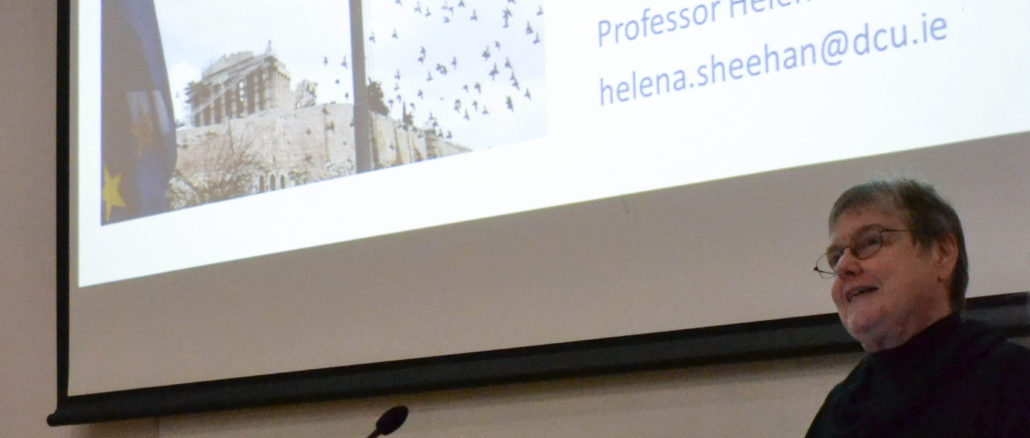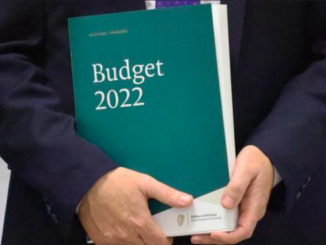
A DCU staff member has hit out at the Students’ Union after they refused to allow her to send an email to students, regarding a left-wing seminar on Greece.
Helena Sheehan, was refused permission to publicise the talk by using the full student e-mail list on the grounds that it wasn’t relevant to all 12,300 DCU students. Over 30 academics expressed solidarity with Sheehan in her request to send the email.
“It’s insolent as well as anti-intellectual. I think the way the world is governed and how wealth is distributed is directly relevant to every individual student,” Sheehan told the College View.
Sheehan argues that in order to have a proper university atmosphere students need to be getting invitations to talks that express strong points of view about the wider world.
Although the talk was politically one-sided, attendees were welcome to challenge what was put forward.
“I think educationally it’s better if you have a debate, and people argue honestly about ideological positions, that’s the spirit of a University,” she said.
SU president, Kenneth Browne, and Education Officer, Gary Gillick, are responsible for approving e-mails that are sent out to this list.
Browne told The College View that the SU try to refine emails after feedback from students saying that the amount of emails being sent was overwhelming. “Certain students stopped using their DCU accounts as a result of excessive emailing,” said Browne. This led to fears that emails about health and safety messages from the university and updates from the union wouldn’t be read.
“If a talk such as this one is directed at a particular cohort of students, we would advise that it be refined to a certain amount of class lists or look at an alternate method of publicising the talk,” said Browne. “If it’s your baby it’s the most important thing in the world to you, but it may not be the most important thing in the world to everyone else,” he continued.
Finance lecturer, Michael Dowling, said his students tell him they “don’t even read the career centre emails as there’s so much nonsense they have to wade through.” Dowling suggested that to ‘bombard’ students with e-mails is exploitative. “We should be concentrating on not distracting people sitting life-determining tests,” he said.
Various academics have spoke out in Sheehan’s defence, favouring the free-flow of information as long as it is strictly intellectual not commercial.
Dr Jane Suiter, political scientist in the School of Communications, shared Sheehan’s views: “I think for the Students’ Union to be putting themselves in the place of a censor and deciding what might be intellectually engaging to the student body is completely inappropriate and utilitarian.”
Professor Steven Knowlton, also of the School of Communications, said: “I think the talk was perfectly valid for dissemination to the student body. This is legitimate EU politics and that’s something DCU students should be involved in.”
An issue was raised by Ryan Hunt, a student of Economics, Politics and Law, and a member of the Young Fine Gail society. He said it is a slippery slope once the SU began publicising political parties or political societies’ activities, and that like all parties they should look for alternative ways of pursuing publicity.
Law student, Mogue Cunningham said: “It’s a very relevant topic to all students as we’re in the EU we should have a community outlook. It concerns Ireland to the same degree as it concerns Greece, especially because of our recent, similar, economic history.”
Chaitanya Brady
Image: Graham McGrath




Leave a Reply